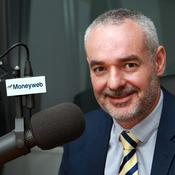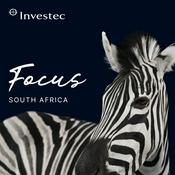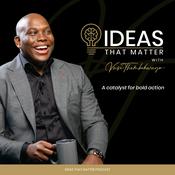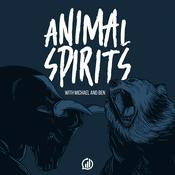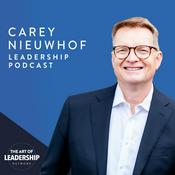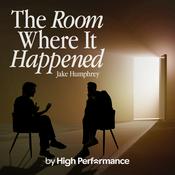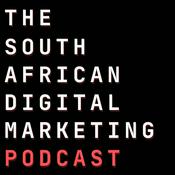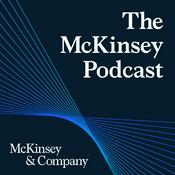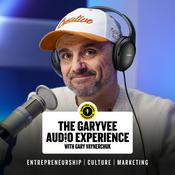848 episodes
848: Exploring Molecular Entomology from Pervasive Pests to Plastic-Eating Caterpillars - Dr. Bryan Cassone
2026/1/19 | 35 mins.Dr. Bryan Cassone is a Professor and Chair in the Department of Biology at Brandon University in Canada. He is a molecular entomologist. Drawn to the sheer variety of fascinating questions insects can help answer, he is more of a generalist than many scientists in his field. His work spans agricultural and medical pests, plus curiosity-driven projects like studying waxworms (plastic-eating caterpillars). Outside the lab, Bryan is a big football fan. After playing football and wrestling in college, Bryan now loves watching both college and NFL games. He also enjoys staying active with swimming and weight training, and he loves traveling to new places. Bryan received his B.Sc. in biology, specializing in environmental science, from the University of Western Ontario, his M.Sc. in integrative biology from the University of Guelph, and his Ph.D. in biological sciences from the University of Notre Dame. After completing his PhD, Bryan conducted postdoctoral research at the Corn, Soybean, & Soft Wheat Unit at the United States Department of Agriculture. Next, he was a CAPS Herta Camera Gross Postdoctoral Fellow in the Department of Plant Pathology at Ohio State University. He joined the faculty at Brandon University in 2015. In this interview, Bryan shares more about his life and science.847: Scientist with Her Sights Set on Using Stem Cells to Study and Treat Retinal Degeneration - Dr. Natalia Vergara
2026/1/12 | 43 mins.Dr. Natalia Vergara is an Assistant Professor of Ophthalmology at the Sue Anschutz-Rodgers Eye Center, University of Colorado School of Medicine on the Anschutz Medical Campus. Natalia uses stem cells to understand how the retina forms during development and how it degenerates during disease with the goal of developing therapies to help patients who suffer from vision loss. For her research, Natalia uses a type of stem cells called induced pluripotent stem cells which can be reprogrammed so they can form any type of cell in the body. With these cells, they can make human retina tissue using any individual's cells in a petri dish in the lab to better understand diseases, test treatments, and potentially prepare retinas for transplant. In her free time, Natalia loves hanging out, cooking, and enjoying food with friends and family, including her husband and two young kids. Natalia is also an avid traveler, and she delights in the thrill of discovery that comes along with exploring new places. Natalia received her B.S. in biochemistry from the National University of the Litoral in Argentina. She worked as an instructor and research intern at the National University of Entre Ríos for about three years before beginning graduate school. Natalia was awarded her PhD in retinal regenerative biology from Miami University in Ohio. Afterwards, she conducted postdoctoral research at the Wilmer Eye Institute of Johns Hopkins School of Medicine. She served as a Research Associate Faculty member at Johns Hopkins School of Medicine for about two years before joining the faculty at the University of Colorado. Natalia has received awards for research and for mentoring, including the Ruben Adler Research Award from the Wilmer Eye Institute at Johns Hopkins University School of Medicine in 2012, and she was selected as an Emerging Vision Scientist to participate in the Third Annual EVS day on Capitol Hill by the National Alliance for Eye and Vision Research in 2017. In our interview, Natalia tells us more about her life and science.846: Studying the Genetics and Mechanisms of Specialized Proteins in the Brain that Regulate Neurotransmission
2026/1/05 | 58 mins.Dr. Randy Blakely is a Professor of Biomedical Science at Florida Atlantic University and Executive Director of the Florida Atlantic University Brain Institute. Randy is examining how neurons control neurotransmitter signaling, as well as how medicinal drugs and drugs of abuse impact neurotransmitters. He is interested in how normal neurotransmitter regulation and changes in neurotransmission due to drugs ultimately impact behavior. Randy lives in beautiful South Florida near the Everglades, and he likes to spend is free time enjoying nature and observing the local wildlife. While commuting between campuses, Randy listens to a variety of audiobooks, and he is also a big fan of Americana and folk music. He received his B.A. in Philosophy from Emory University and his Ph.D. in Neuroscience from the Johns Hopkins School of Medicine. He next conducted postdoctoral research at the Yale/Howard Hughes Medical Institute Center for Molecular Neuroscience. Randy was an investigator and faculty member at Emory University and Vanderbilt University before accepting his current position at Florida Atlantic University. Randy is the recipient of numerous awards and honors for his research and mentorship. He was awarded the Daniel Efron Award from the American College of Neuropsychopharmacology, two Distinguished Investigator Awards from the Brain and Behavioral Research Foundation, a MERIT Award from the National Institute of Mental Health, a Zenith Award from the Alzheimer's Association, the Delores C. Shockley Partnership Award in recognition of minority trainee mentorship, as well as the Astellas Award in Translational Pharmacology and the Julius Axelrod Award both from the American Society for Pharmacology and Experimental Therapeutics. In addition, he is a Fellow of the American Academy for the Advancement of Science. Randy joins us in this episode to talk more about his life and science.845: Decoding the Role of Biophysical Signals in Health and Disease - Dr. Nirosha Murugan
2025/12/29 | 42 mins.Dr. Nirosha J. Murugan is a Tier II Canada Research Chair in Tissue Biophysics as well as Distinguished Research Chair and Assistant Professor in the Department of Health Sciences at Wilfrid Laurier University. Her research focuses on how our bodies, cells, and tissues communicate with each other from the molecular scale all the way up to our organs, physiology, and consciousness. She is interested in the kinds of information that are shared, including light, electromagnetic fields, and electricity, as well as the physics of how the information is transmitted. Her lab develops tools to record biophysical signals and also tools to help reprogram these signals back to a healthy state when something goes wrong in diseases like cancer. Outside the lab, Nirosha loves spending time with her six-year-old daughter and watching her creativity develop. She also practices Olympic recurve archery and relishes the sense of freedom she gets flying as a recreational pilot.
She was awarded her B.S. in behavioral neuroscience, her M.S. in biophysics, and her PhD in biomolecular sciences from Laurentian University. Afterwards, she conducted postdoctoral research at the Allen Discovery Center at Tufts University. During that time, she also served as a teaching fellow at Harvard University in the Department of Molecular and Cellular Biology. She served on the faculty at Algoma University before joining the faculty at Wilfrid Laurier University in 2024. Over the course of her early career, Nirosha has received numerous awards and honors including the Early Researcher Award from the Ontario Ministry of Development and Innovation and was the recipient of Rising Awards of Excellence from the Government of Ontario, Young Professional Visionary Award from the Sault Ste Marie Chamber of Commerce and an Optica Foundation Award to develop new optical tools to solve global health challenges. In this interview, Nirosha shares more about her life and science.844: Applying Physics and Nanotechnology to Understand Mechanics and Shape in Biological Systems - Dr. Sonia Contera
2025/12/22 | 41 mins.Dr. Sonia Contera is an Associate Professor of Biological Physics at the University of Oxford Physics Department, and a Research Fellow of Green Templeton College. She is also the author of the recently released book Nano comes to Life. Sonia is a physicist who is interested in biology and the mechanics of biology across different space and time scales. She develops experiments and techniques to understand the physics that allow biological systems to build nano-scale molecules into cells, organs, tissues, and organisms. Projects in Sonia's lab include studying and treating pancreatic tumors, understanding heart arrhythmias, and investigating the physics of plant growth. When she's not doing science, Sonia likes to relax and do nothing. She also enjoys spending time with people she loves, talking to people, cycling, walking, exploring art, and learning new languages. Sonia received her bachelor's degree in physics from the Autonomous University of Madrid. She attended graduate school at Beijing Languages and Culture University and subsequently worked as a researcher at the Czech Academy of Sciences. Sonia was then awarded a Japanese Government Monbushō scholarship to attend Osaka University where she received her PhD in Applied Physics. Next, Sonia was awarded an E.U. Fellowship to Japan at the Institute of Scientific and Industrial Research SANKEN at Osaka University. Prior to coming to Oxford in 2003, she served as a Research Assistant Professor at the Interdisciplinary Nanoscience Centre at the University of Aarhus in Denmark. In 2008, Sonia founded the Oxford Martin Institute of Nanoscience for Medicine at the Oxford Martin School. In our interview, Sonia shares more about her life and science.
More Business podcasts
Trending Business podcasts
About People Behind the Science Podcast Stories from Scientists about Science, Life, Research, and Science Careers
Are you searching for great stories to ignite your curiosity, teach you to perform better in life and career, inspire your mind, and make you laugh along the way? In this science podcast, Dr. Marie McNeely introduces you to the brilliant researchers behind the latest scientific discoveries. Join us as they share their greatest failures, most staggering successes, candid career advice, and what drives them forward in life and science.
Our website with show notes]]
Greetings science fans!
We're elated to welcome you to People Behind the Science where we explore the lives and experiences of the people behind the research and scientific discoveries of today.
People Behind the Science's mission is to inspire current and future scientists, share the different paths to a successful career in science, educate the general population on what scientists do, and show the human side of science.
In each episode, a different scientist will guide us through their journey by sharing their successes, failures, and passions. We are excited to introduce you to these inspiring academic and industry experts from all fields of science to give you a variety of perspectives on the life and path of a scientist.
Our esteemed guests will tell you:
what motivates them and how they balance their competing responsibilities
how they worked through some of the most challenging times in their careers
advice to help you through your own journey through life and science
Our Podcast
People Behind the Science is a podcast focused on the people doing fascinating research through interviews with top scientists. We are proud to have interviewed so many inspiring scientists, including U.S. National Academy scientists like Josh Sanes, Nick Spitzer, Lou Muglia, Jacob Israelachvili, Gene Robinson, Larry Squire, John Dowling, James Berger, and David Spergel, as well as popular scientists in the media like Donna Nelson (science advisor for the TV show Breaking Bad) and Jack Horner (science advisor for the Jurassic park movies). We are honored to have shared their amazing stories with people in all 50 states in the USA and in over 120 countries across the world.
Podcast websiteListen to People Behind the Science Podcast Stories from Scientists about Science, Life, Research, and Science Careers, The Diary Of A CEO with Steven Bartlett and many other podcasts from around the world with the radio.net app
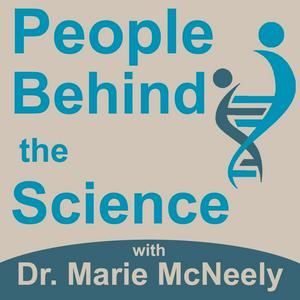
Get the free radio.net app
- Stations and podcasts to bookmark
- Stream via Wi-Fi or Bluetooth
- Supports Carplay & Android Auto
- Many other app features
Get the free radio.net app
- Stations and podcasts to bookmark
- Stream via Wi-Fi or Bluetooth
- Supports Carplay & Android Auto
- Many other app features


People Behind the Science Podcast Stories from Scientists about Science, Life, Research, and Science Careers
Scan code,
download the app,
start listening.
download the app,
start listening.




